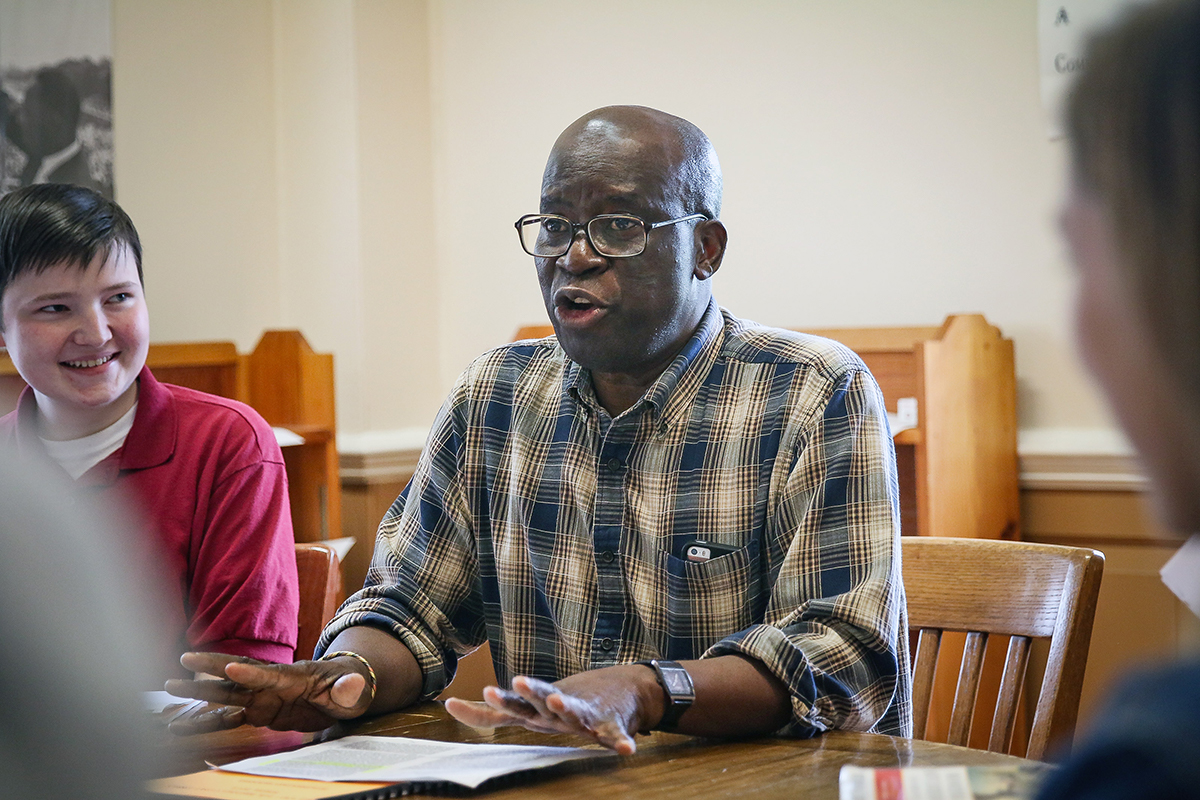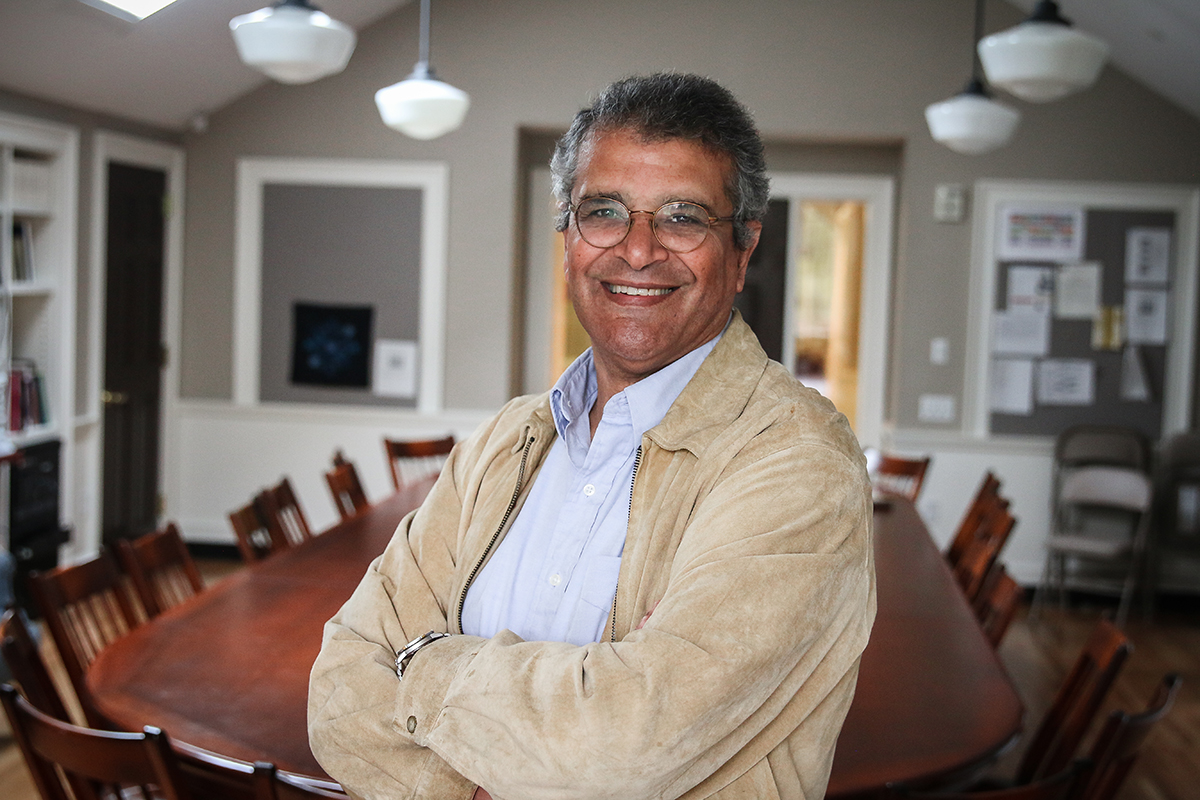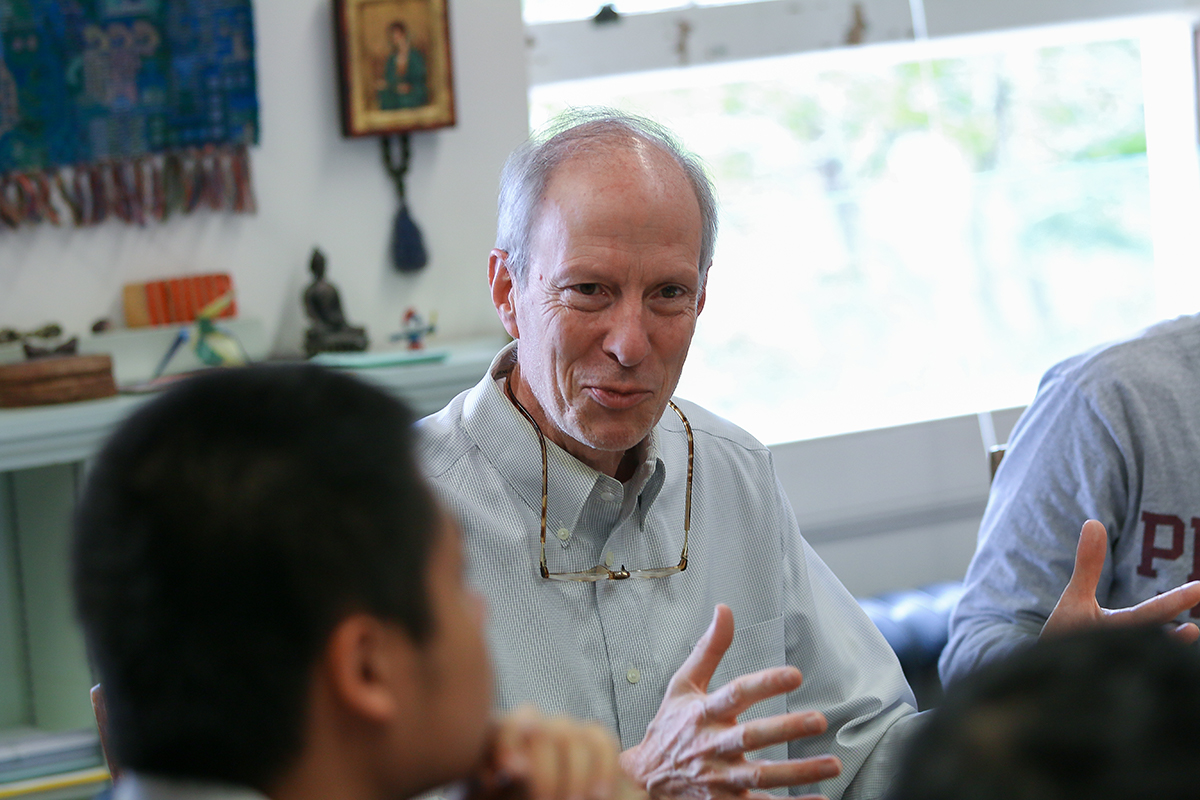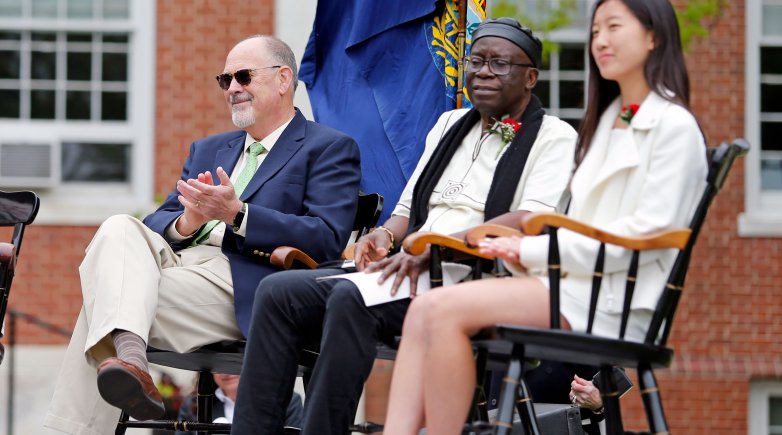Retiring faculty leave a legacy of global reach
Four who expanded programs with a worldwide focus and helped develop a more supportive residential culture.
Tom Seidenberg (left) and Kwasi Boadi (center), two of the four Exeter faculty retiring this year, at graduation.
This summer we say goodbye to four retiring Exeter faculty: Kwasi Boadi, Ahmed Jebari, Tom Ramsey and Tom Seidenberg.
Over their combined 78 years of teaching at Exeter, they have enlarged the Academy’s global footprint through curricular expansion and the teaching of Harkness concepts to teachers around the world. And they have enriched the community by developing programs to enhance dorm life.
They are beloved by the students they taught and mentored for a reason: their ability to understand how young individuals succeed as learners and as people. As Seidenberg puts it, “I have great empathy for kids who struggle in mathematics. I was once one of them.”
Kwasi Boadi
A history teacher since 2006, and revered for his empathy, Boadi expanded Exeter’s curricular offerings to Africa, first in 2012 with a term-program launch in Ghana, and recently in planning for the debut of the Johannesburg program this fall.
But it is Harkness that takes his heart. “It is every teacher’s paradise,” says the former Michael Ridder ’58 Distinguished Professor. “There is nothing more fulfilling than to sit down with 12 highly motivated students, who have done their homework, for an engaging and enlightening intellectual exchange.”

Watch Boadi discuss Harkness at Exeter's YouTube channel.
This summer Boadi continues his work with the secondary school teachers workshop, the Exeter Humanities Institute. Afterward he returns to his native Ghana, where he hopes to introduce Harkness to local schools.
Ahmed Jebari
A quadri-linguist who introduced Arabic to the curriculum in 2005, Jebari also taught Spanish and French, all languages he spoke actively as a child growing up in Morocco. He has led term programs in both Ecuador and Spain. Ever popular among students, he was dorm head of Peabody Hall for many years and always provided a warm smile to his dorm flock.
A highlight of his Exeter years came in 2006 when the Chief Justice of Iraq visited New Hampshire. Jebari served as the chief justice’s translator, including for an Exeter assembly.
Jebari returns to Morocco, where he plans to write a history of artists in Larache, a harbor town on the northern coast.

Tom Ramsey
Ramsey originally came to Exeter to fill a one-year sabbatical opening. Hooked by the joys of the place (“The tall windows in my classroom opening onto the enameled green of a spring campus, the mysteries of Harkness tables ...,” he wrote at the time), Ramsay returned full-time in 1998. He has chaired the Religion Department and taught in EHI.
“It’s hard for me to decide which was more fulfilling, teaching or dorm work,” says Ramsey who, as head of Hoyt Hall, was a leader in shaping new programs in Exeter’s residential community. “The predominantly intellectual dimension of the classroom and the broadly moral dimension of dorm life work together. … What has made my career at Exeter so rewarding has been the opportunity to bring these together in all of my interactions with students.”
Ramsey continues his work with EHI this summer.

Tom Seidenberg
As a math teacher, basketball and squash coach, dorm head at Lamont and Ewald, and member of many committees, Seidenberg observed almost three decades of change on Exeter’s campus.
“I was always impressed by the kids who were willing to take risks by jumping up to the board and solve a problem on the fly or provide an alternative method of solution, something I would have been reluctant to do as a teenager,” says the former Bates-Russell Distinguished Professor. “The table makes it safe to speak up, make mistakes and take risks.”
As director of the Anja S. Greer Conference on Mathematics and Technology, Seidenberg expanded participation to include teachers from around the world; he also taught math workshops in foreign locales from Colombia to Australia.
In retirement, Seidenberg plans to tutor students in math and focus on his digital photography.



